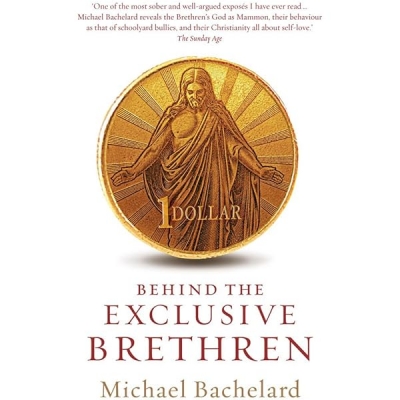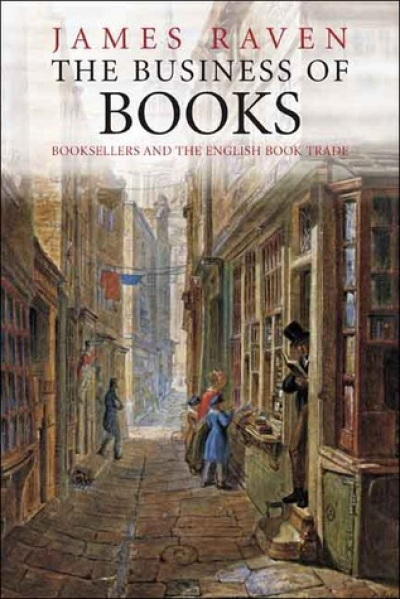Andrew Bacevich, a former lieutenant colonel in the United States army and self-avowed conservative, has emerged in recent years as one of the most incisive and far-reaching critics of American foreign policy and of the Bush administration. His two previous books, American Empire: The Realities and Consequences of U.S. Diplomacy (2004) and The New American Militarism: How Americans Are Seduced by War (2006), argued that the Bush administration has followed a path laid down by earlier administrations. In short, it is not an aberration. In his latest book, The Limits of Power, Bacevich not only holds little hope of foreign policy change from a McCain or Obama administration but also questions whether either would have any intention of changing the broad direction of American foreign policy. In an interview that I conducted with Bacevich recently in Boston, he described Barack Obama’s foreign policy as ‘thoroughly conventional’, a description certainly not meant as a compliment.
In American Empire, Bacevich attempted to justify his claim that continuity, not change, predominates recent American foreign policy. He did so by arguing that both the Clinton and Bush administrations have chosen as a central goal an open-door policy, where American businesses have greater access to foreign markets and where the American military has greater reach and more foreign bases. He presented these policies as thoroughly imperial and bipartisan.
In The New American Militarism, he showed how Bush drew on, rather than constructed, a culture that reveres military endeavours and military equipment in a way that profoundly misunderstands the sensible role of a military in a society. More generally, Bacevich, in his recent articles and Op-Eds, has frequently claimed that, like many other American presidents, Bush’s promotion of a ‘freedom agenda’ is a candy-coated justification for American expansionism. Bacevich views this combination of hubris and self-interest, backed up by overconfidence in America’s military strength and primacy, as disastrous.
In The Limits of Power, Bacevich takes up these themes once more, this time in a more direct and less academic manner than in his earlier books. Bacevich’s early works drew significant inspiration and analytical purchase from the writings of the left-wing scholar William Appleman Williams. In his new book, Bacevich uses the realist Reinhold Niebuhr as a lighthouse to guide the reader to wisdom in these worrying times; many passages begin with a quote from Niebuhr, who in the last paragraph is even referred to as ‘our prophet’.
The wisdom that Bacevich dispenses is often deeply pessimistic about America’s ability to recognise the errors of its ways. At its worst, this pessimism echoes the metaphor of the demise of Rome to predict the fate of the American Empire, recently overused by Chalmers Johnson and others. This is a small criticism, however. When compared to other root and branch critiques of the follies of the American empire, this book has much to recommend about it. Although not in the same league as Anatol Lieven’s brilliant America Right or Wrong: An Anatomy of American Nationalism (2005), The Limits of Power is certainly one of the best critiques of American foreign policy written in recent years. Its sobriety, directness, largely evidence-based attacks, and attempts to offer solutions (even if the author sees little chance that they will be taken up) all make for compelling reading.
The central argument presented in the book is that American culture and government do not have a healthy respect for limits. As a people, Americans have a ‘shop till they drop’ mentality, using credit that is widely available and even more widely abused. ‘He who has the most toys wins’ is the motto of this profligate culture.
Given that responsibility and limits are frequently ignored by many Americans, Bacevich asks why the government would be any different. As evidence of this shallow culture, where consumption is king and sacrifice is someone else’s problem, Bacevich quotes President Bush telling the American people after 9/11 that they faced a long war against Islamo-fascism and that the appropriate response was to ‘get down to Disney World in Florida’ and ‘go shopping more’. Furthermore, this culture of accumulation has always driven Americans outwards seeking gold and oil, which has in turn created an American empire.
Bacevich’s distaste for American mall culture and his call for personal limits reminded me of an author not mentioned by name, but one certainly respected by Bacevich: the late Christopher Lasch. Although I found Bacevich’s cultural critique at times too sweeping, and incomplete in its understanding of the allure of consumer culture, his anti-materialism has much that is admirable.
The later chapters on the political and military crises afflicting the United States are similarly hard hitting in pointing out the rot at the centre of America’s institutions of state. Evidence was sometimes light on the ground in these chapters; I hope that Bacevich turns his considerable talents to developing these arguments in future works.
His discussion of the political crisis has many targets: the deficient role of Congress, the imperial presidency, James Forrestal, NSC 68 and Paul Wolfowitz. The central message is that the inflation of threats is one of the unfortunate legacies of the Cold War; it continues to be used by ambitious advisers and imperial presidents to mute dissent and pervert American democracy.
Along with the political crisis, Bacevich details a military crisis which he believes has been created by deficient civilian decision-makers and an underwhelming military hierarchy that fails to appreciate that ‘the utility of armed force remains finite’. Bacevich believes that the American government has yet to realise the fundamental truth, as once colourfully put by Norman Mailer, that ‘Fighting a war to fix something works about as good as going to a whore-house to get rid of a clap’.
Bacevich argues that for the United States to move forward it would do best to concentrate on two policies: nuclear disarmament (of itself first and foremost) and preservation of the planet (where it should lead by example). He does not totally dismiss the threat of Islamic extremism, but argues for a defensive policy of containment rather than an offensive and pre-emptive approach. However, this book offers more critique than prescriptions for future presidents.
Bacevich’s discussion of the history of the American quest for independence from foreign oil seemed particularly apt after the rhetoric of the recent Republican Party convention. American leaders have promised this independence many times: Jimmy Carter most presciently in his so-called ‘malaise speech’; Ronald Reagan and Bush most vacuously, and every candidate in the current presidential campaign. At the Republican Party convention, Sarah Palin’s speech was regularly (and depressingly) punctuated by chants from the crowd of ‘Drill, baby, drill’.
Bacevich’s book offers a matter-of-fact critique of consumer culture and imperial politics, and for this he should be congratulated. However, the benefits of America’s restlessness and its search for more (and something better) is undervalued. For traditional conservatives, the United States has often been seen as disruptive and shallow; however, I would contest that this ‘feverish ardour’, as Tocqueville called it, played a crucial role in breaking down class barriers (particularly social class distinctions), promoting democracy at home (and, yes, abroad, beginning with Europe) and promoting the notion of individual human rights.
It cannot be denied that the United States has used the language of freedom too often to mask self-interest, and fine-sounding words have frequently been used to justify crude social engineering of the type that Paul Bremer attempted in Iraq. However, without this often blundering force for change in the world, many people would be more exposed to the cruelties of local dictators and customs. As imperfect as America’s record has been, a globally engaged United States seems to me more desirable than the realist vision for American foreign policy presented by Bacevich. I argue this because ‘greed and folly’ is not only an American syndrome.
The great weakness of Bacevich’s analysis is that he does not consider the comparative dimension of international affairs. In other words, he fails to deal with the reality that, bad as American conduct often is, it is frequently better and more transparent than that of other nations, all of which have their own national pathologies and transnational desires.
...
(read more)









